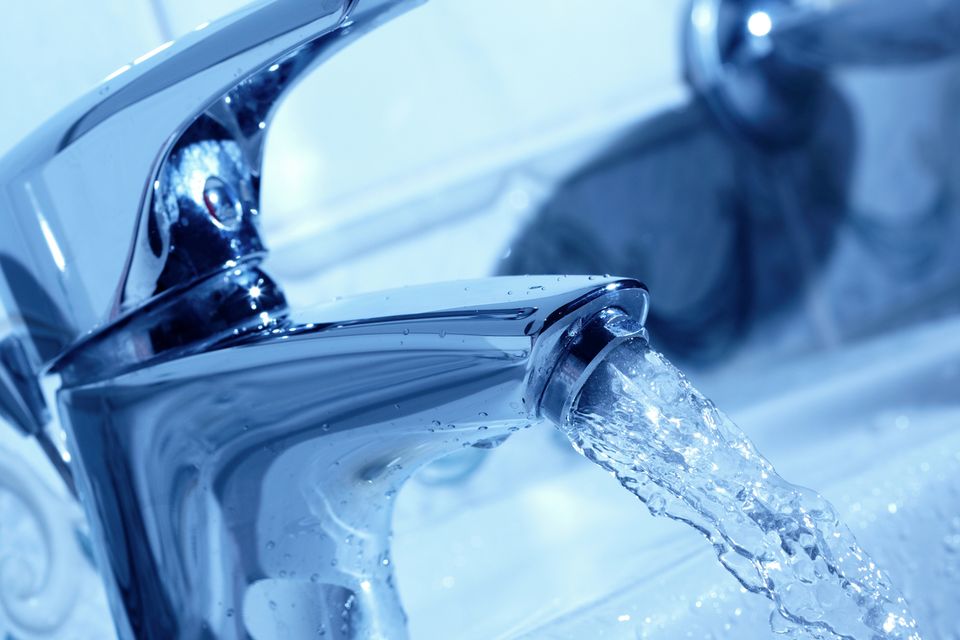No financial incentive now to curb water use
Conservation falls flat in Dublin region with fixed water charges
Irish Water is expected to take control of collecting water charges from commercial customers next year
Barely a drop of water has been conserved by Dublin consumers since Irish Water introduced a flat-rate system last November, the Sunday Independent can reveal.
Despite water conservation being touted by Government as one of the main reasons for the introduction of the controversial water charges, the latest figures suggest that consumers in the greater-Dublin area are back to their old wasteful consumption patterns because there is no longer a financial incentive to conserve.
According to figures from Dublin City Council's engineering department, which supplies water to a third of the greater-Dublin region, the average daily consumption rate is now almost at pre-Irish Water levels.
The daily consumption rate since February has averaged at approximately 540m litres a day compared with an average of 543m before water charges were due to come into effect last autumn.
The average consumption figures for 2015 ironically mirror the €540m it has cost Irish Water to date to install 730,000 water meters.
Although the rate dipped to an average of 524m litres a day in July, that is a normal seasonal variation - not an indication of increased conservation, according to an engineering department source.
The current consumption patterns, however, are in marked contrast with the water usage levels recorded last October when they plummeted to 511m litres a day after the water charges were to go into effect.
At the time executive engineer Pat Cronin described the drop as "quite noticeable".
"Leaving out normal seasonal and demand variability, the drop in demand is quite noteworthy and indicates the impact of customer conservation measures on demand and water use," he said.
But since the Government changed tack following a public outcry over the hated water charges and Environment Minister Alan Kelly announced in November that an annual fixed rate of €160 per single household and €260 per multi-person households would apply for non-metered consumers until 2018, the consumption patterns began nudging upwards again to an average of 537m litres a day for the remainder of 2014.
Water charges then came into effect in January 2015 but were capped at the flat-rate thresholds, which also apply to those who have meters - regardless of how much water they consume.
However, consumers with meters who use less than their threshold allowance will be charged accordingly.
But Independent Dublin City councillor Ruairi McGinley, who obtained the most recent figures, said the consumption figures so far for 2015 underscore his prediction last year: "If the charge isn't usage-based, you won't get a change in behaviour."
Mr McGinley said the lack of water conservation poses a very real and serious threat to supply, which he described as currently being on a "knife edge".
The current maximum output capacity for the Dublin region is 564m litres a day.
But now that the financial incentive to conserve has been removed as a result of the flat rate, Irish Water is doing little to encourage conservation because it's not in the utility's interest to do so, he claimed.
"Irish Water should be advocating for this (conservation), but they're not," he said.
Malcolm Noonan, environment spokesman for the Green Party which was one of the first parties calling for the introduction of water charges as a conservation measure, said Irish Water now not only faces a financial challenge following the damning report this week by Eurostat, but a "major challenge to reduce consumption" in order to ensure continuity of supply.
"Now there's no incentive for the public to change their ways," he said. "People can put on their lawn sprinklers for five hours and there's no penalty. The way the utility was set up, there's no incentive to encourage conservation."
But he said both householders and businesses in the greater-Dublin area could be facing "significant shortages of water in the next four to five years" due to the growing population in Dublin.
He branded the so-called Water Conservation grant - which all householders who register with Irish Water are entitled to whether they make any attempt to conserve water or not - a complete farce.
"It was effectively a bribe to get people to sign up," he said.
The issue of conservation was also raised at a hearing of the Commission for Energy Regulation in November when Irish Water confirmed to the energy regulator that even when water meters are installed, the estimated saving would be only around 22 litres a day - the equivalent of one dishwasher cycle - per family.
However, the startling figures, based on Irish Water's own survey of 1,600 householders, was conducted before charges were to be levied.
Irish Water said its metering programme will still conserve water by identifying leaks and informing consumers of their usage patterns.
Join the Irish Independent WhatsApp channel
Stay up to date with all the latest news















